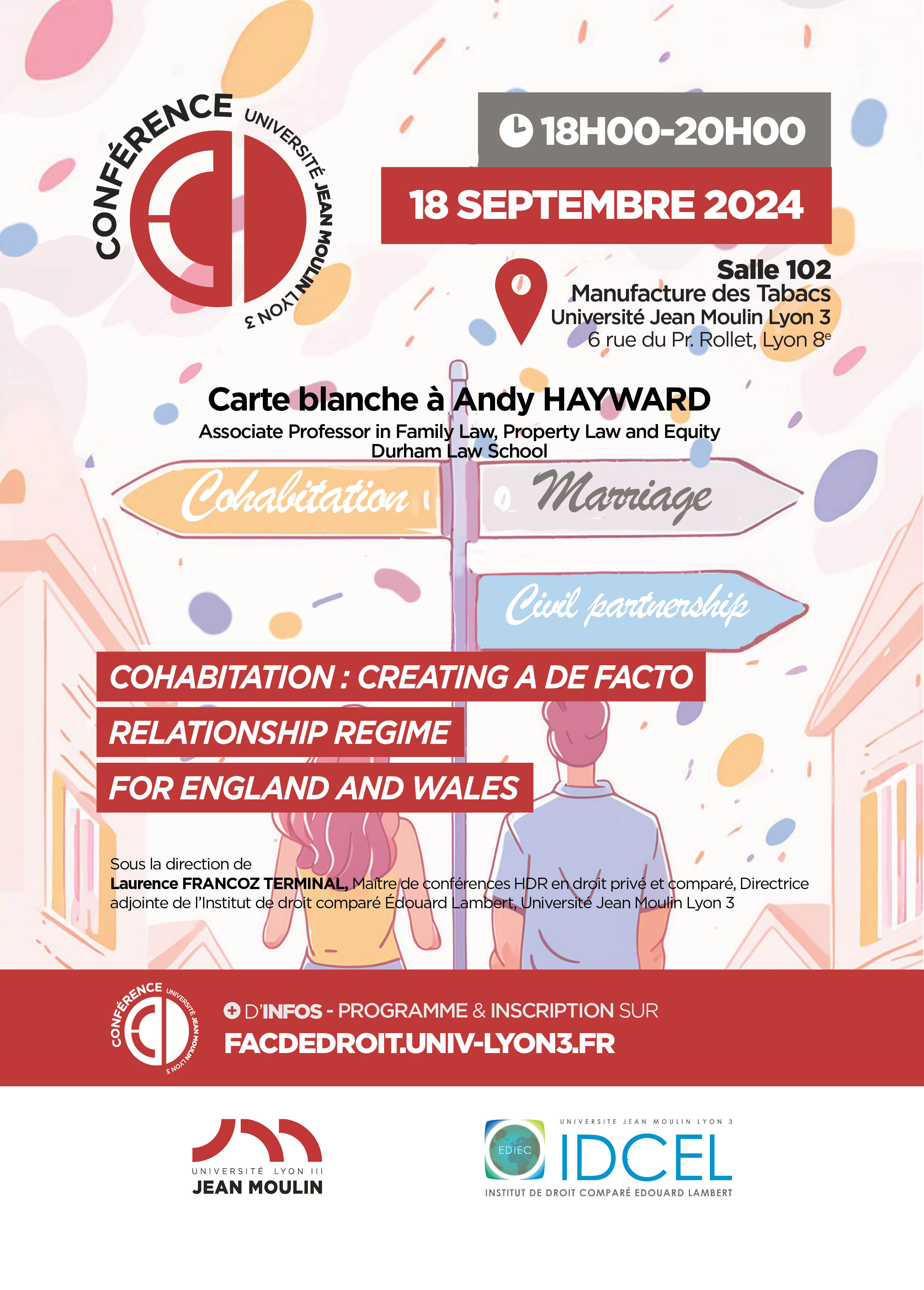Informations
Le 18 septembre 2024 De 18:00 à 20:00
Campus de la Manufacture des Tabacs
Salle 102
Manufacture des Tabacs
Université Jean Moulin Lyon 3
18 rue Chevreul Lyon 7e
Document(s) à télécharger
- Programme_Carte blanche_Andy HAYWARD PDF, 678 Ko
Inscription

Contact
Mise à jour : 6 juin 2025

